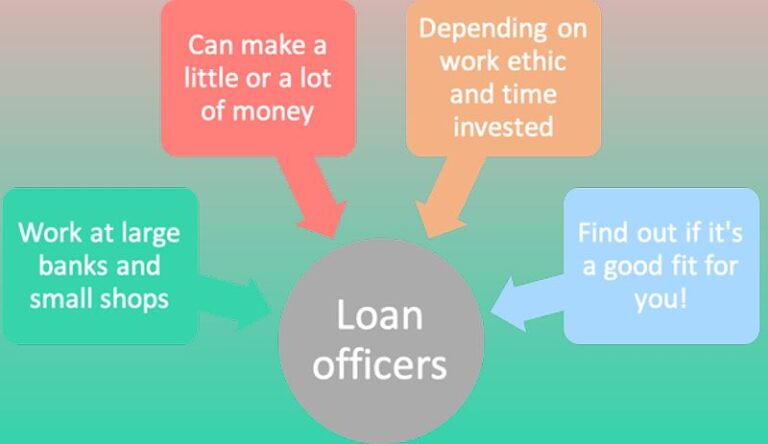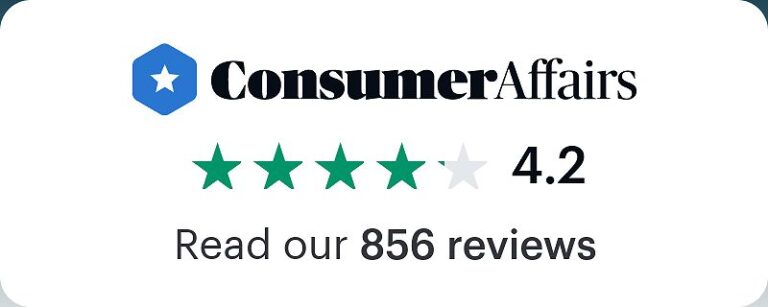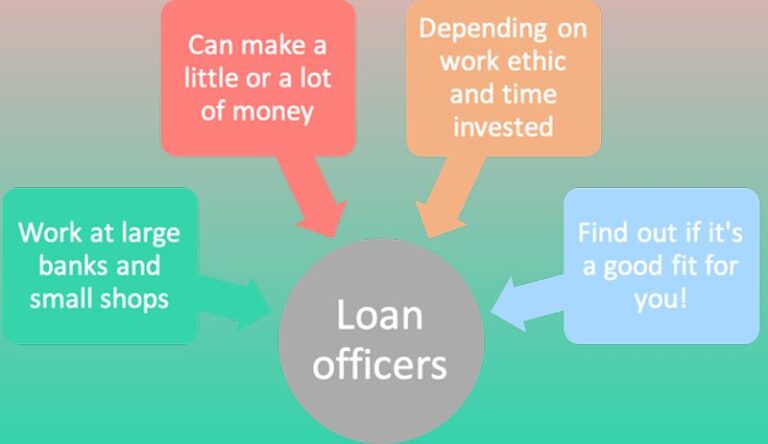How To Discharge Private Student Loans: A Comprehensive Guide For Individuals
You might think that discharging private student loans is impossible, but there are actually a few potential avenues to explore. While the process can be complex and often requires significant effort, understanding the options and navigating the intricacies of loan agreements can lead to debt relief. This guide provides a comprehensive overview of the strategies and considerations involved in how to discharge private student loans.
Understanding the Complexity of Private Student Loan Agreements
The first step in discharging private student loans is to thoroughly review your loan agreement. Private student loans are governed by individual contracts, which can vary significantly in terms of their terms, conditions, and discharge policies. By carefully examining the fine print, you may uncover potential avenues for relief that are specific to your situation.
Key Terms and Conditions to Look For
When reviewing your loan agreement, pay close attention to the following clauses:
- Discharge Provisions: Look for any terms that specify circumstances under which the loan may be discharged, such as death or disability.
- Interest Rates and Fees: Understanding your interest rates and any applicable fees is crucial for assessing your overall debt burden.
- Repayment Terms: Familiarize yourself with the repayment schedule, including the duration of the loan and any options for deferment or forbearance.
- Cosigner Clauses: If your loan has a cosigner, review the terms related to their obligations and what happens in the event of their death or disability.
Knowing your rights and understanding the intricacies of your loan agreement can be a powerful tool in navigating the complexities of debt relief. For instance, some private loan agreements may include clauses regarding “acceleration,” which means the entire loan balance becomes due immediately if a payment is missed. Others might have “variable interest rate” clauses that can lead to unpredictable increases in your monthly payments. Understanding these details is crucial for assessing your overall debt burden and exploring your options.
How to Discharge Private Student Loans
While the options for discharging private student loans are more limited than federal loans, there are still several strategies worth considering. Let’s explore them in detail:
Death of the Borrower
In the unfortunate event of the borrower’s passing, private student loans may be eligible for discharge. The process typically involves the borrower’s beneficiaries or estate presenting the lender with a death certificate, which can then trigger the loan’s cancellation.

Potential Complications: While this process can lead to loan discharge, complications may arise if the loan was cosigned. It’s important to note that cosigners are often legally obligated to repay the loan if the borrower dies, even if they weren’t the primary beneficiary. Some cosigners may not be financially prepared to take on this responsibility, leading to potential financial strain and legal disputes.
Disability Discharge
If the borrower is deemed permanently and totally disabled, they may be able to apply for a disability discharge of their private student loans. This process often requires extensive documentation and medical evidence to demonstrate the borrower’s inability to work and repay the debt.
Criteria for Disability Discharge:
- Permanently Disabled: You must provide medical documentation proving that your disability is permanent and that you are unable to maintain substantial gainful activity.
- Application Process: The borrower will typically need to submit an application to the lender, along with supporting documentation from medical professionals.
Cosigner’s Death
Some private student loan agreements may include provisions that allow for the discharge of the loan in the event of the cosigner’s death. If you have a cosigner on your private loan and they pass away, it’s worth exploring this option with your lender.
Understanding the Terms: The specific terms and conditions regarding cosigner death can vary by lender, so it’s essential to clarify these details in your loan agreement.
Loan Forgiveness Programs
Although less common than federal loan forgiveness programs, some private lenders may offer their own initiatives to help borrowers. While rare, some private lenders may offer programs for specific professions, like teachers, nurses, or social workers, who work in underserved communities. These programs often require a certain number of years of service in qualifying roles before forgiveness kicks in.
Examples of Potential Programs:
- Public Service Forgiveness: Some lenders may offer forgiveness for borrowers who work in public service roles.
- Teaching or Healthcare Initiatives: Certain professions may qualify for specific forgiveness programs related to community service or public health.
Bankruptcy as a Last Resort
Discharging private student loans through bankruptcy is often considered a last resort, as the process is complex and the standards for proving “undue hardship” are exceptionally high.
Understanding Undue Hardship
To successfully discharge private student loans in bankruptcy, you must demonstrate that repaying the debt would prevent you from maintaining a minimum standard of living. This can be challenging as courts often scrutinize your income, expenses, and ability to work. For example, in the case of In re: Scarola, the court determined that the borrower’s inability to secure a job due to a medical condition did not constitute undue hardship. These cases highlight the difficulty of successfully discharging private student loans through bankruptcy.
The Bankruptcy Process: Filing for bankruptcy is a complex legal process that involves multiple steps, such as gathering extensive financial documentation, filing a petition with the court, and attending a bankruptcy hearing. This process can be lengthy, often taking several months, and requires the assistance of a qualified bankruptcy attorney.
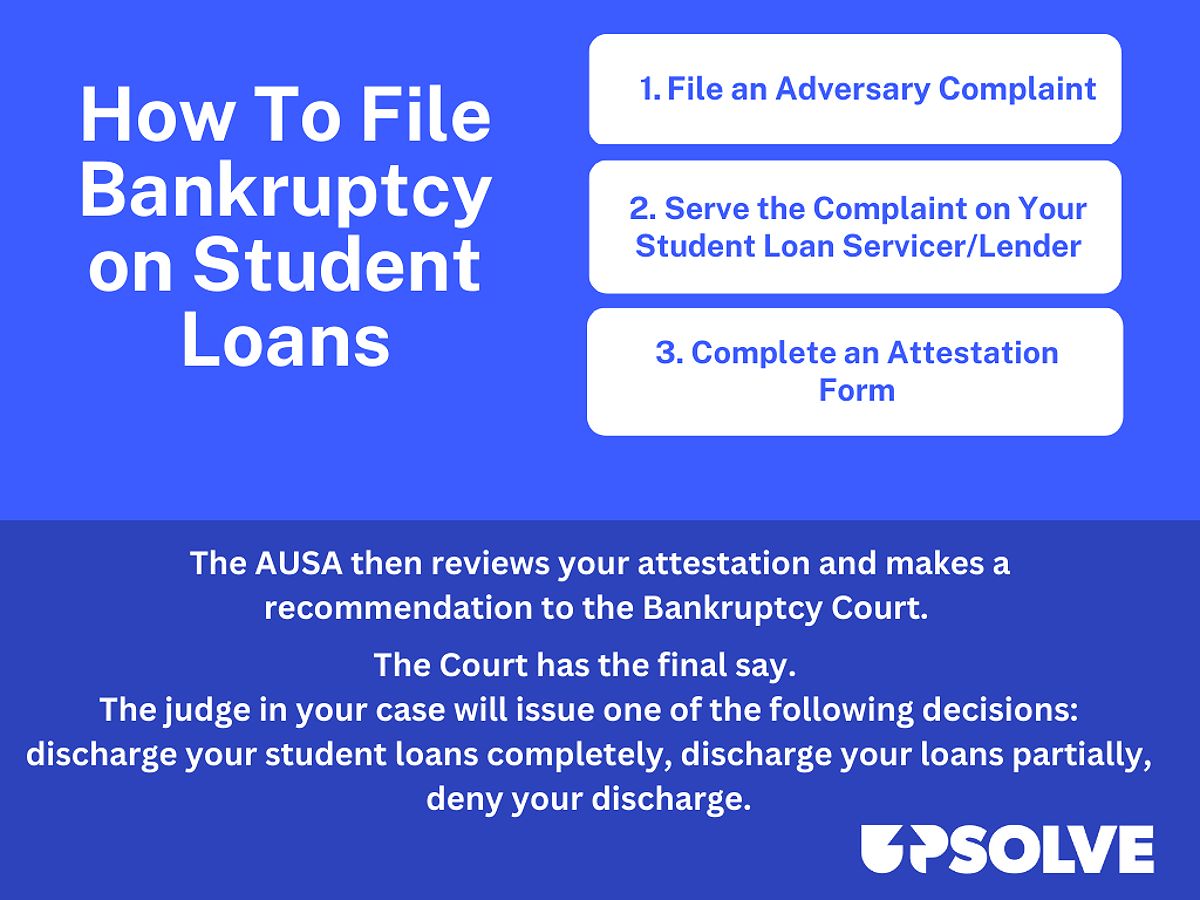
Potential Consequences of Bankruptcy
Filing for bankruptcy can have long-lasting consequences, including:
- Impact on Your Credit Score: Bankruptcy can significantly lower your credit score, making it challenging to secure loans or credit in the future.
- Financial Limitations: You may face restrictions on your financial activities, including the ability to obtain new credit.
It’s crucial to consult with a qualified bankruptcy attorney to assess your specific situation and determine if this is the best course of action.
Managing Private Student Loan Debt
If discharging your private student loans is not a viable option, there are alternative strategies you can explore to manage your debt:
Income-Driven Repayment Plans
Some private lenders may offer income-driven repayment plans, which can adjust your monthly payments based on your current financial situation. This can provide temporary relief and make your loans more manageable.
Benefits of Income-Driven Plans:
- Lower Monthly Payments: Payments may be reduced to a percentage of your discretionary income, making them more affordable.
- Flexible Terms: These plans may provide flexibility in repayment terms, allowing you to adjust as your financial situation changes.
Loan Consolidation
Consolidating multiple private student loans into a single loan can potentially lower your interest rate and simplify your repayment process.
Pros and Cons of Consolidation:
- Benefits: Simplified payments and potentially lower interest rates.
- Drawbacks: However, consolidating private loans with federal loans can lead to the loss of valuable benefits like income-driven repayment plans and forgiveness programs. Carefully consider the trade-offs before consolidating, especially if you have federal loans with advantageous terms.
Deferment or Forbearance
Depending on your lender’s policies, you may be able to temporarily postpone or reduce your private student loan payments through deferment or forbearance.
Understanding Deferment vs. Forbearance:
- Deferment: Interest may not accrue during this period for certain types of loans.
- Forbearance: Interest typically continues to accrue, which can increase your total debt.
Negotiation
In some cases, you may be able to negotiate with your private lender for more favorable repayment terms, such as reduced interest rates or modified monthly payments. This approach requires persistence and a willingness to engage in constructive dialogue with your lender.
Tips for Effective Negotiation:
- Prepare Your Case: Gather documentation of your financial situation to present to your lender.
- Be Persistent: Don’t hesitate to follow up or escalate your request if you don’t receive a satisfactory response.
Seeking Professional Guidance
Navigating the complexities of private student loan discharge and debt management can be overwhelming. Seeking guidance from financial advisors, credit counselors, or bankruptcy attorneys can be invaluable in helping you assess your options and develop a comprehensive strategy.
Benefits of Professional Guidance
- Personalized Advice: Professionals can provide tailored strategies based on your unique financial situation.
- Understanding Loan Agreements: They can help interpret complex loan terms and conditions.
- Guidance Through Processes: Whether applying for discharge or negotiating with lenders, their expertise can be instrumental.
The Impact of Recent Legal Developments
The recent Supreme Court ruling on the Biden administration’s student loan forgiveness plan has created uncertainty for borrowers, especially those with private loans. The ruling focused on federal loans, but its implications for private loans remain unclear. Some private lenders may be more hesitant to offer forgiveness programs or negotiate repayment terms in light of the ongoing legal debate.
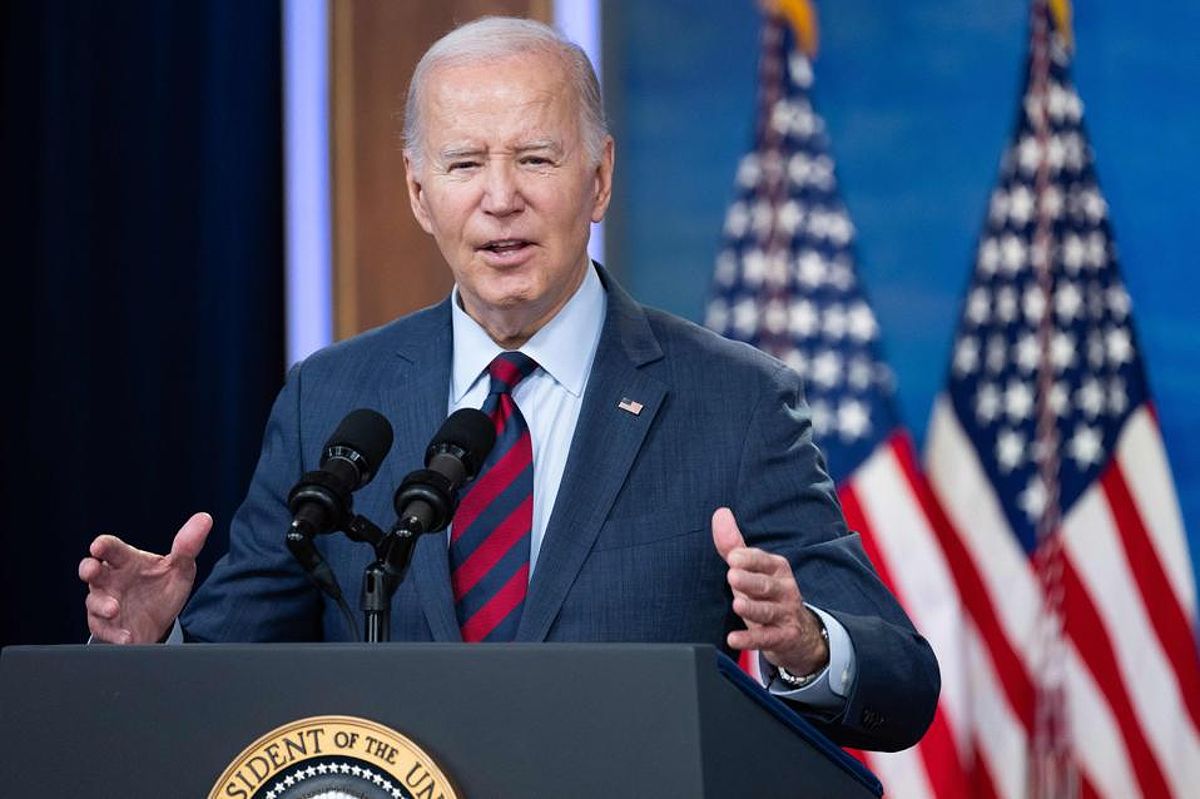
The Impact of COVID-19 on Private Student Loan Debt
The COVID-19 pandemic has significantly impacted the economic landscape, including the challenges faced by those with private student loan debt. Many individuals have experienced job loss, reduced income, and financial instability, making it even more difficult to manage their private student loan obligations.
Temporary Relief Measures from Lenders
In response to the pandemic, some private lenders have offered temporary relief measures, such as forbearance or deferment options. As of October 2023, the federal student loan payment pause and interest accrual suspension have ended, and borrowers are now required to resume payments. This could lead to an increase in the number of private loan borrowers struggling to manage their debt, especially those who had relied on the temporary relief measures.
Staying Informed: It’s essential to stay informed about any COVID-19-related policies or assistance programs offered by your private lender and to explore all available options to manage your debt during this challenging time.
Understanding Your Rights and Options
While exploring options to discharge or manage your private student loan debt, it’s crucial to be aware of potential pitfalls that could further complicate your situation.
Student Loan Discharge Scams
One common issue is falling victim to student loan discharge scams, where fraudulent individuals or organizations claim to offer quick or guaranteed debt relief for a fee. These scams can lead to additional financial losses and may even result in further damage to your credit.
Consolidating Federal and Private Loans
Another potential pitfall is the temptation to consolidate private student loans with federal loans. While this may seem like a straightforward solution, it can come at the cost of losing access to federal loan benefits, such as income-driven repayment plans and forgiveness programs. Before considering consolidation, carefully weigh the pros and cons to ensure it’s the best course of action for your specific circumstances.
FAQ
Q: Can I discharge my private student loans through bankruptcy?
A: While it is possible to discharge private student loans through bankruptcy, the process is extremely difficult. You must prove that repaying the loans would cause you “undue hardship,” which is a high legal standard that requires demonstrating an inability to maintain a minimum standard of living and the likelihood of continued hardship.
Q: What if my private student loan is in default?
A: Defaulting on a private student loan does not automatically trigger discharge. In fact, it can further damage your credit score and make it harder to secure future loans. Addressing defaulted loans through negotiation, consolidation, or other debt management strategies is essential.
Q: Are there any government programs that can help with private student loans?
A: Government programs primarily focus on federal student loans. However, some private lenders may participate in government-backed initiatives or offer their own forgiveness or assistance programs. It’s worth exploring these options, but they are generally less common than for federal student loans.
Conclusion
Discharging private student loans can be a complex and challenging endeavor, but it’s not impossible. By understanding the unique considerations, exploring potential discharge options, and considering alternative debt management strategies, you can navigate this landscape and take steps toward alleviating your private student loan burden.
Remember, seeking professional guidance from financial experts and bankruptcy attorneys can be invaluable in guiding you through this process. With the right approach and a clear understanding of your options, you can find a path forward that aligns with your financial goals and personal circumstances.
As the economic climate continues to evolve, it’s crucial to stay informed about the latest developments and resources available to private student loan borrowers. By proactively addressing your debt, you can take control of your financial future and work towards a more stable and secure financial footing.




